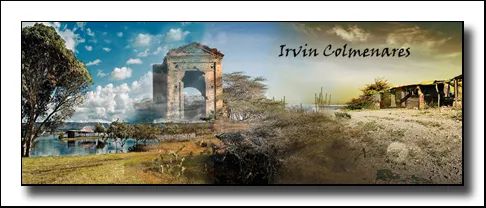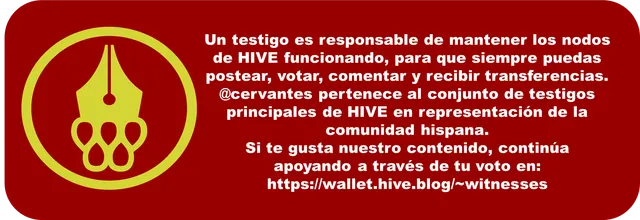
Saludos. Para esta semana los amigos de la comunidad @humanitas nos invitan a reflexionar sobre la ingeniería, esa capacidad humana de usar los conocimientos producidos por la ciencia para encontrar soluciones a cualquier tipo de problemas.
El desarrollo científico y tecnológico han mostrado las grandes posibilidades del pensamiento humano. En los dos últimos siglos se crearon tecnologías tan impresionantes que rompieron cualquier esquema que hubiese servido como referencia. La técnica logró alcanzar una autonomía que la situó como el conocimiento Rey. Un conocimiento tan deslumbrante que los hombres se rinden a sus pies.
Sin embargo, una buena parte de ese gran desarrollo tecnológico se revierte contra la misma humanidad. Los avances tecnológicos no miden los costos ambientales que se derivan del uso de ciertas tecnologías, muy extendidas, como las relacionadas con el uso de combustibles fósiles y las derivadas de la energía núclear.
Los creadores, de modo conscientes o no, producen tecnologías con alto poder destructivo, capaces de acabar la vida en el planeta.
En otro contexto, los algoritmos para el procesamiento de Big Data y la inteligencia artificial se usan deliberadamente para manipular las formas de vida de la gente o para tenerlos sometidos a sistemas de control social. La privacidad del ser humano está profundamente amenazada. El mismo teléfono que sirve para comunicarse con amigos y familiares es una eterna maquinaria de recopilación de información para imponer gustos, matrices de opinión y perspectivas de vida.
Ha sido largo el camino para llegar a producir conocimiento de este modo, sin que el científico y el ingeniero fuesen capaces de caer en cuenta de las consecuencias de sus acciones. Para ello ha sido necesario despojarlos a ambos de cualquier conciencia ética, sembrar la profunda creencia que su actividad es sobre todo neutra, y que su función se limita simplemente a encontrar la solución a los problemas presentados, olvidándose de cualquier otro tipo de consideraciones.

Situados en esta perspectiva es fácil aceptar que la responsabilidad se limita a cumplir con la tarea encomendada; lo que pudiera pasar posteriormente escapa de sus manos. Para aliviar la llegada de remordimientos inoportunos siempre queda el recurso de responsabilizar por los males a políticos, empresarios, o cualquier personalidad ligada con el poder.
Mientras escribo pienso en aquel principio propuesto, para otras circunstancias, por Hannah Arendt: “el de la banalidad del mal”. Arendt habló de “la banalidad del mal” para poder entender como muchísimas personalidades, gente común y corriente, burócratas de cualquier nivel, de la Alemania nazi, cumplían su función como parte de una gigantesca maquinaria de exterminio sin sentirse culpables, asumiendo que se limitaban a cumplir con sus trabajos, a cumplir con sus órdenes como cualquier trabajador de cualquier empresa.
Salvando las distancias, algo de esa “banalidad del mal” circula subterráneamente, de modo imperceptible, en el modo de hacer ciencia de nuestro tiempo.
Los amigos de @humanitas nos preguntan si deberían acercarse más a las humanidades conocimientos como el de la ingeniería. Ese acercamiento se vería como muy necesario a la luz de los grandes desastres ambientales producidos por el uso de tecnologías irracionales.
Hay quienes dicen que los problemas creados por nuestro modo de vida son irreversibles, que hemos cruzado el punto de no retorno, otros, más optimistas, dicen que todavía estamos a tiempo para enmendar las cosas. En cualquiera de los dos casos los correctivos serían una gran noticia.
Sí pareciera indispensable que los creadores de ciencia pudieran retomar una visión holística del mundo, pensar que sus actuaciones no son eventos aislados e independientes, sino que se inscriben en una gran cadena de multicausalidades.
Cada pequeña decisión puede producir efectos de gran magnitud. Una vuelta a la ética le haría mucho bien a esta manera de producir conocimiento. El hombre de ciencia debe estar consciente de las consecuencias de sus actuaciones.
He disfrutado escribiendo la publicación. Agradezco a los amigos de @humanitas por dejarnos la invitación para el debate.
Gracias por tu tiempo.


Greetings. For this week the friends of the @humanitas community invite us to reflect on engineering, that human capacity to use the knowledge produced by science to find solutions to any kind of problems.
Scientific and technological development has shown the great possibilities of human thinking. In the last two centuries, technologies were created that were so impressive that they broke any scheme that had served as a reference. Technology managed to reach an autonomy that placed it as the King of knowledge. A knowledge so dazzling that men surrender at its feet.
However, a good part of this great technological development is reversed against humanity itself. Technological advances do not measure the environmental costs derived from the use of certain widespread technologies, such as those related to the use of fossil fuels and those derived from nuclear energy.
The creators, consciously or not, produce technologies with high destructive power, capable of ending life on the planet.
In another context, algorithms for Big Data processing and artificial intelligence are deliberately used to manipulate people's ways of life or to have them subjected to social control systems. Human privacy is deeply threatened. The same telephone that is used to communicate with friends and family is an eternal information gathering machine to impose tastes, information and life perspectives.
It has been a long road to produce knowledge in this way, without the scientist and the engineer being able to realize the consequences of their actions. For this it has been necessary to strip them both of any ethical conscience, to sow the deep belief that their activity is above all neutral, and that their function is limited simply to finding the solution to the problems presented, forgetting any other type of considerations.
In this perspective, it is easy to accept that responsibility is limited to fulfilling the task entrusted to them; what might happen later is out of their hands. To alleviate the arrival of inopportune remorse there is always the resource of blaming politicians, businessmen, or any personality linked to power for the evils.
As I write I think of that principle proposed, for other circumstances, by Hannah Arendt: "the banality of evil". Arendt spoke of "the banality of evil" in order to understand how many personalities, ordinary people, bureaucrats of any level, in Nazi Germany, fulfilled their function as part of a gigantic extermination machine without feeling guilty, assuming that they were merely doing their jobs, fulfilling their orders like any other worker in any company.

Saving the distances, something of that "banality of evil" circulates subway, imperceptibly in the way of doing science of our time.
Our friends at @humanitas ask us whether knowledge such as engineering should be brought closer to the humanities. Such a rapprochement would be seen as very necessary in light of the great environmental disasters produced by the use of irrational technologies.
There are those who say that the problems created by our way of life are irreversible, that we have crossed the point of no return; others, more optimistic, say that there is still time to make amends.
It does seem essential that the creators of science take a holistic view of the world, thinking that their actions are not isolated and independent events, but are part of a great chain of multicausalities.
Each small decision can produce effects of great magnitude. A return to ethics would do much good to this way of producing knowledge. The man of science must be aware of the consequences of his actions.
I enjoyed writing the post. I thank the folks at @humanitas for letting us have the invitation for the discussion.
Thank you for your time.
Translated with www.DeepL.com/Translator (free version)







Te invito a apoyar este proyecto como witness y a formar parte de esta gran comunidad uniéndote a su Discord en el siguiente enlace:
Discord de la comunidad Cervantes

You can vote for @ocd-witness, with HiveSigner or on Hive Witnesses.

